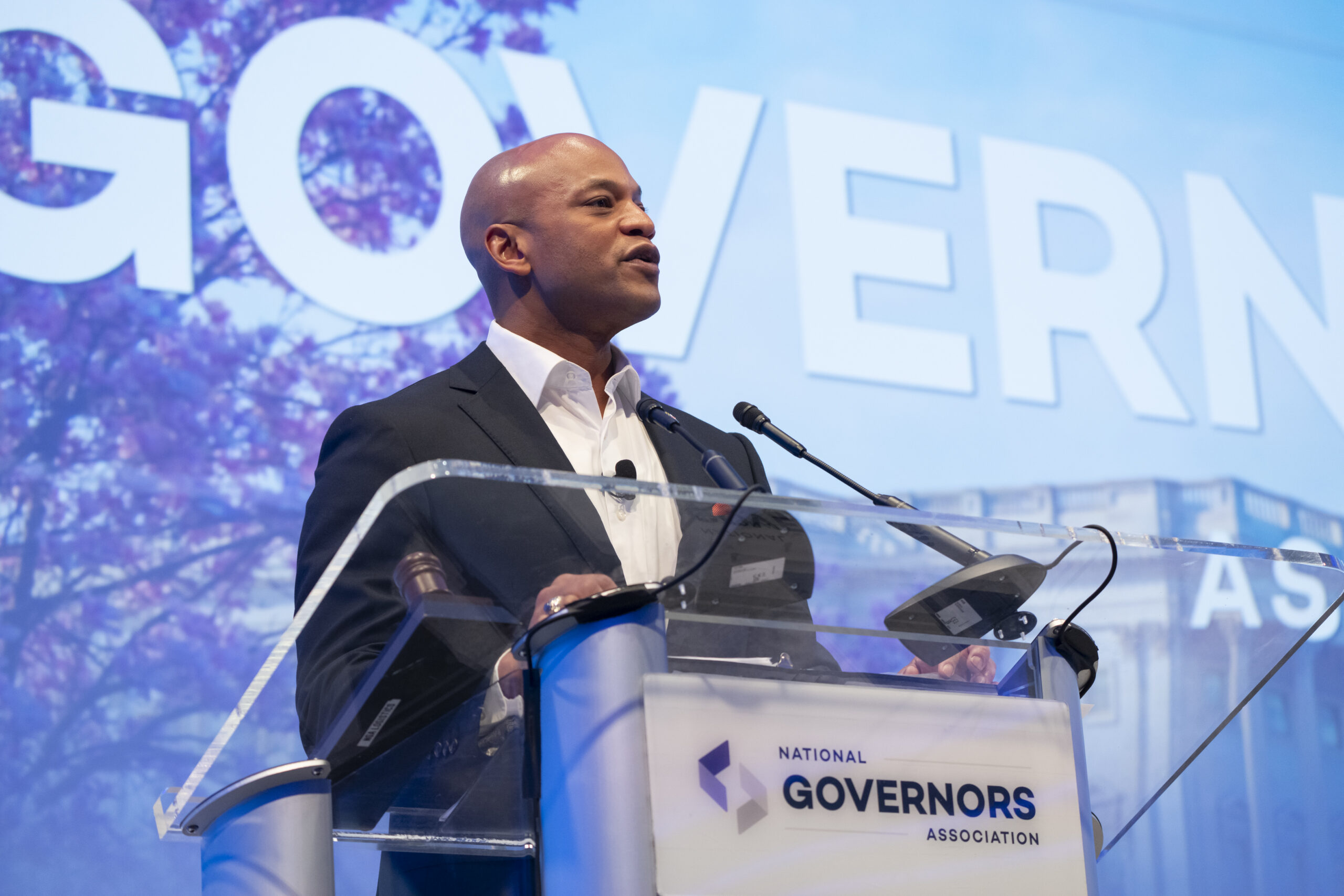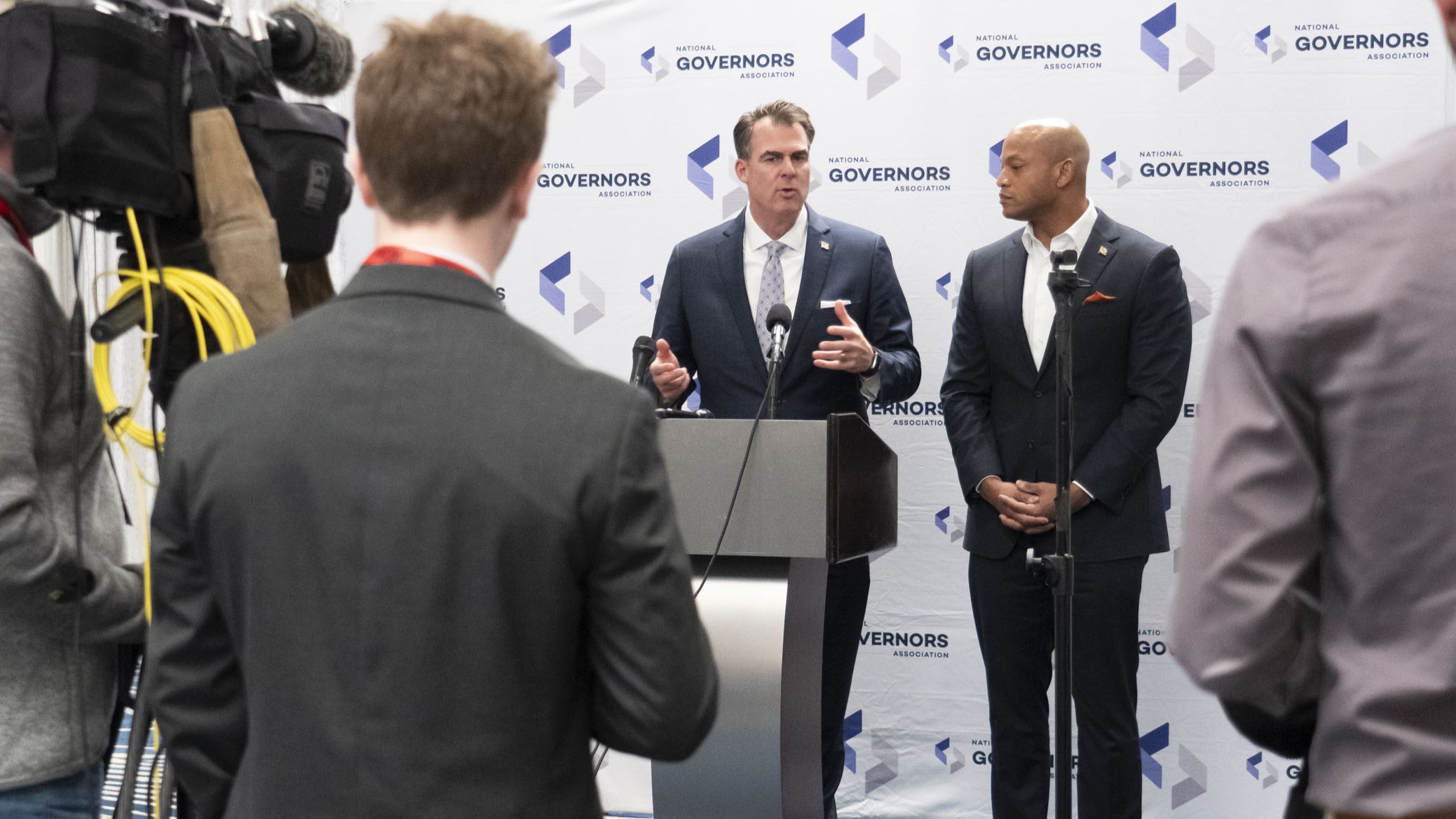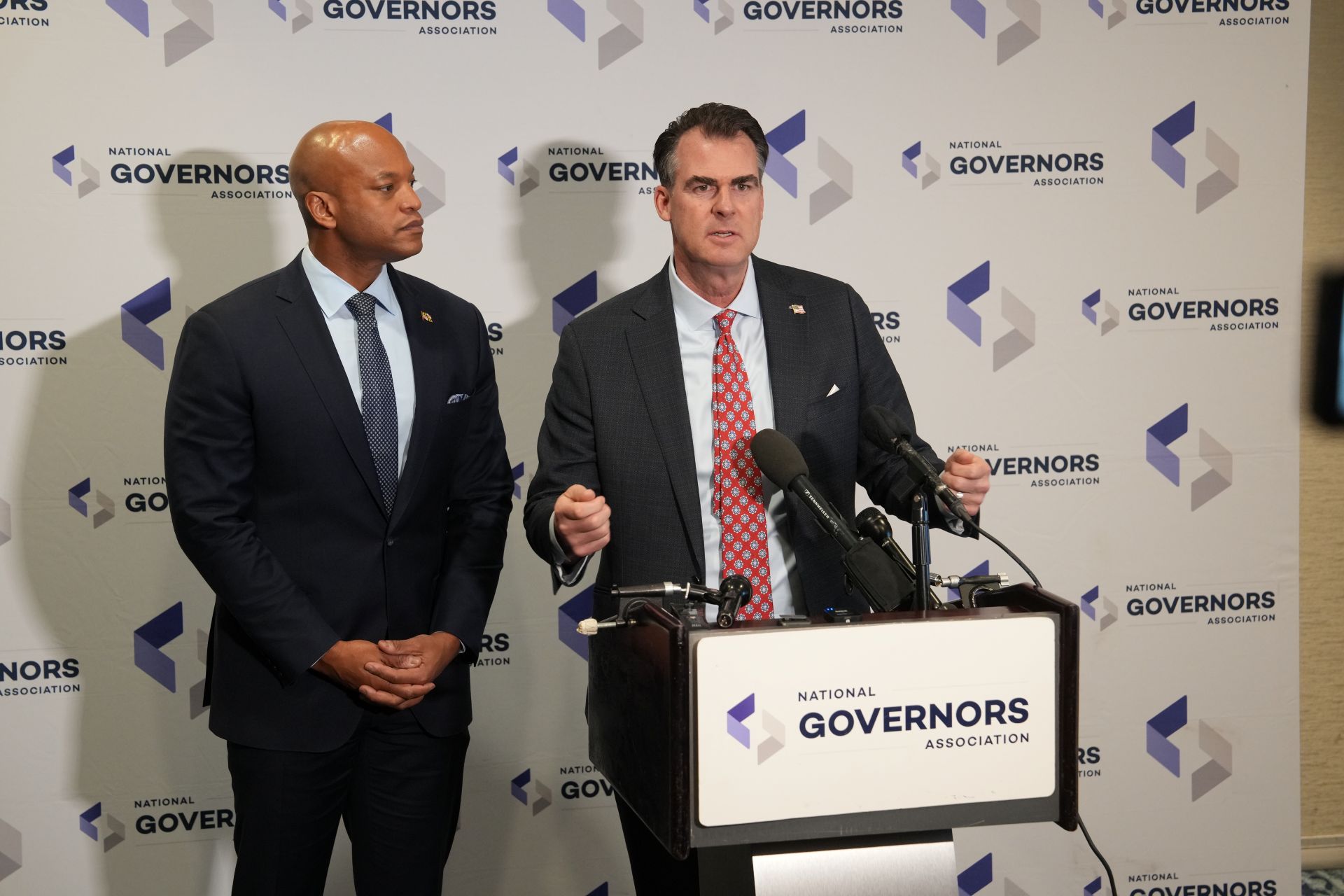The Honorable Mike Johnson
Speaker
United States House of Representatives
Washington, DC 20515
The Honorable Hakeem Jeffries
Minority Leader
United States House of Representatives
Washington, DC 20515
The Honorable John Thune
Majority Leader
United States Senate
Washington, DC 20510
The Honorable Chuck Schumer
Minority Leader
United States Senate
Washington, DC 20510
Dear Speaker Johnson, Majority Leader Thune, Minority Leader Schumer, and Minority Leader Jeffries:
Governors stand ready to engage and support your efforts to draft and pass a timely and bipartisan surface transportation reauthorization bill that upholds a strong state-federal-territorial partnership and invests in our nation’s core transportation programs.
Governors have consistently worked closely with Congress on surface transportation and have been at the forefront of implementing these investments. We have seen the value of federal transportation funding in our communities and understand how additional Congressional action could address continued challenges with project delivery.
States and territories are also responsible for setting transportation performance management standards for safety, bridge condition, pavement condition, and travel time. We rely on federal support and creative policymaking at all levels to achieve these critical standards of safety and reliability that save lives, support local economies, and protect our national security.
We applaud Congress’s dedication to reauthorizing America’s surface transportation programs ahead of their expiration next year and look forward to sharing our perspectives throughout the process.
To advance our shared goals of maintaining and modernizing infrastructure across the country, Governors urge committee leadership to adopt the following recommendations:
ENSURE ROBUST FUNDING LEVELS NOW AND IN THE FUTURE
While the Infrastructure Investment and Jobs Act (IIJA) made significant investments in improving American infrastructure, inflation has considerably increased costs and decreased purchasing power for materials, labor, and land rights of way. Last year, the Bureau of Transportation Statistics estimated a 31% decrease in IIJA’s purchasing power under a modest inflation scenario. As a result of these severe inflationary pressures and supply chain challenges, IIJA has not been able to support as many projects as originally intended. Even at current funding levels, the American Society of Civil Engineers (ASCE) projects a $1.242 trillion shortfall through 2033 in the ability to maintain a state of good repair for the nation’s surface transportation. Congress’s ability to meet this need is threatened by major shortfalls in the Highway Trust Fund. Governors support Congressional action to:
- Set topline funding for surface transportation at IIJA levels or higher. With the impact of inflation, continued or increased funding levels across all surface transportation programs are critical to maintain safety and meet significant transportation investment needs.
- Continue investment levels across modes of transportation. As each state and territory pursues the modes of transportation that work best for varying geographies and local economies, Governors support a multimodal approach that preserves robust federal support for mass transit, freight rail, and intercity passenger and commuter rail in addition to highway programs.
- Maintain funding levels even if program distribution changes. We expect and recommend that the distribution between formula and discretionary programs will change in this reauthorization package. As such changes are made, we ask that Congress shift money between programs and avoid cutting topline funding levels.
- Address shortfalls to the Highway Trust Fund. In January, the Congressional Budget Office estimated that under current tax and spending policy a five-year surface transportation reauthorization would face a $150-plus billion shortfall. While General Fund transfers have historically made up this difference, states and territories rely on stable, predictable federal funding. Therefore, Governors encourage Congress to pursue sustainable funding mechanisms for the Highway Trust Fund. As new sources of revenue are considered, Governors ask Congress to seek an equitable approach to user-pay models with regard to all types of vehicles and funding structures.
- Invest in innovation. To ensure American competitiveness, Governors support research and development efforts that spur innovation in alternative transportation and fuel sources. We also ask Congress to continue innovative finance programs like the Transportation Infrastructure Finance and Innovation Act (TIFIA) loans.
PROMOTE CERTAINTY AND TIMELY RELEASE OF FUNDS
Safety risks and project costs increase over time, so investing in resilient infrastructure in a timely manner is the most fiscally responsible use of federal resources. Projects are also more successful when federal funding is predictable enough that states and territories can plan targeted workforce development programs and private sector partners feel confident enough to invest. Governors support Congressional action to:
- Reauthorize surface transportation programs ahead of their expiration on September 30, 2026. Any lapse in authorization would threaten the ability of state and territorial departments of transportation to maintain our nation’s roads and bridges.
- Work with the Administration to fully fund obligated IIJA awards. As Congress looks to approve future infrastructure funding, it is important to Governors that the federal government meets its already committed obligations for federally funded projects across states, territories, and commonwealths.
- Streamline grant agreements and consider setting targeted timelines for approval. Even after federal awards are announced, it can take up to a year or more for grant agreements to be finalized. This delays projects and increases costs. We encourage Congress to consider streamlining the grant agreement process (e.g., ensuring that each project only requires one grant agreement), instructing the U.S. Department of Transportation (USDOT) to create a model grant agreement template that can be customized, and legislating a target time frame for grant agreements to be finalized.
- Improve permitting to accelerate project delivery. Permitting reform is a key piece of any surface transportation reauthorization agreement. We would like to see consistent, simplified environmental reviews that maintain protections without overburdening state and federal agencies. Among other reforms, we support clear project approval timelines, improved coordination between state and federal review processes, sufficient federal staffing to support permit reviews, and consistent National Environmental Policy Act (NEPA) findings across USDOT subagencies.
- Reduce regulatory burdens that slow investment. New federal mandates, regulations, and bureaucracy will stifle efficiencies, suppress the effectiveness of federal investment, and unnecessarily delay critically needed transportation improvements. To reduce existing burdens, we urge Congress to consider eliminating unnecessary or duplicative reporting requirements for states and territories.
- Provide legislative clarity to rebuild quickly after disasters. Congress could better support Governors’ disaster response efforts by expressly permitting the submission of after-the-fact emergency response documentation when restoring pre-existing infrastructure in NEPA, the National Historic Preservation Act, and the Endangered Species Act and authorizing additional eligible actions for emergency repairs to NEPA categorical exclusions. We also encourage the creation of a program to make quick-release advance reimbursements to respond to federally declared disasters. Governors urge Congress to expand eligibility for the Emergency Relief Program to include betterments that improve resiliency.
INCREASE FLEXIBILITY BY PRIORITIZING FORMULA PROGRAMS
State and territorial departments of transportation (DOTs) have a long-term, trusted partnership with the federal government in executing infrastructure funding at the state and local levels. The states and territories we represent each have different goals and needs that are hard to account for at the federal level. To prioritize funding through state and territorial DOTs and ensure the program flexibility necessary to meet the unique needs of our residents, Governors support Congressional action to:
- Focus on core federal highway and transit programs. Sustained funding is important for highway and transit formula programs. We also encourage Congress to continue the Bridge Formula Program that was created in IIJA and consider establishing a formula program for rail.
- Limit new discretionary programs and consolidate by expanding eligibility for formula programs. Given resource constraints at the local level, federal transportation funding is best implemented in a centralized fashion through state and territorial DOTs working directly with municipalities. To use federal dollars most efficiently, prioritize formula funding over discretionary. This also gives states and territories the flexibility necessary to focus funding where it is needed and dedicate more time to project delivery. Instead of additional discretionary programs, Congress should consider the consolidation of new and existing grant categories as additional eligibilities for formula programs.
- Continue certain discretionary programs. Governors support discretionary programs that fund projects of regional and national interest and those that are difficult to finance through traditional formula programs. For example, we are supportive of the following programs: National Infrastructure Project Assistance (Mega); Infrastructure for Rebuilding America (INFRA); Rural Surface Transportation Grant Program (Rural); Bridge Investment Program (BIP); Better Utilizing Investments to Leverage Development (BUILD); Promoting Resilient Operations for Transformative, Efficient, and Cost-saving Transportation (PROTECT); Consolidated Rail Infrastructure and Safety Improvements (CRISI); ferry programs; and Capital Investment Grants for transit. The goal of the Safe Streets and Roads for All (SS4A) program is important to improve public safety in our communities. In future iterations, we encourage more of the safety funding to go towards implementation and for awards to flow through states and territories.
- Increase transferability for formula programs from 50% to 100%. Providing this additional flexibility will make it easier for Governors to prioritize funding in the areas where it is most needed.
We look forward to working closely with the respective Senate and House committees to help advance a new surface transportation authorization that delivers predictable, flexible funding for infrastructure because a strong state-territorial-federal partnership is critical to the success of our nation’s surface transportation system.
Sincerely,
Governor Andy Beshear
Kentucky
Co-Chair
Economic Development and Revitalization Task Force
National Governors Association
Governor Henry McMaster
South Carolina
Co-Chair
Economic Development and Revitalization Task Force
National Governors Association












